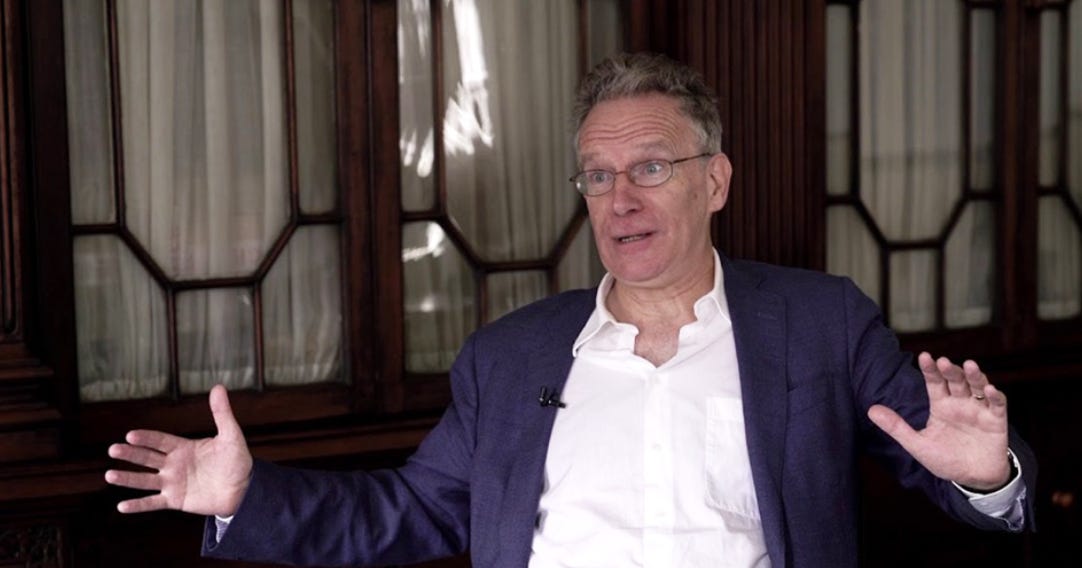Hi all,
I’ve had a busy year and wanted to provide some updates. Some of my writing has been published on other platforms but not here, so I thought it would be beneficial to use the email as a list of those past essays you may not have seen. Expect more newsletters, podcasts, and updates on my book project coming soon.
Greenwashing: How Forests Reveal Climate Change Contradictions
The Irish government’s Climate Action Plan seeks to reduce greenhouse gas emissions by about 50 percent by 2030. Assuming the intention is to cause the least amount of burden for the most amount of benefit, the government would pursue the optimal solution. However, the government’s green agenda is convoluted, unwieldy, and obscure. To reveal this, let’s explore an alternative way to the attain the climate target — forests.
Why Irish Electricity Prices Soar Above Europe
Sinn Fein’s Pearse Doherty recently pointed out the drastically higher prices Irish consumers pay compared to their European peers. According to Eurostat, Ireland’s electricity tracked European averages until September of 2022 when Irish prices greatly diverged. By October of 2022, Irish prices increased by 28 percent while the European Union (EU) and Euro area (EA) averaged 4 and 9 percent growth respectively. From October of 2022 to June of 2023, EU and EA electricity prices dropped by 10 and 16 percent while Ireland’s prices remained approximately unchanged. Why did Ireland not follow the European trend for the first half of 2023?
The Vanity of Fintan O’Toole
The appointed intellectual of Ireland, Fintan O’Toole, recently wrote in The Irish Times about the new staging of Seán O’Casey’s plays The Plough and the Stars, The Shadow of a Gunman, and Juno and the Paycock at the Galway International Arts Festival…[His] methodology demarcates its highest measure as stereotyping and lampooning Gaelic-Irish Catholics in templates laid down by previous English imperialists and compounded by modern western culture. The vanity that O’Toole criticized others of having is actually a projection of his own vain attachment to the mythology of Yeats. O’Toole is, himself, too immature to see that he voluntarily accepts being the butt of an imperialist joke. They are laughing at you Fintan, not with you.
What did Michael Collins Want For Ireland?
Michael Collins died 101 years ago. As we pass his death’s anniversary, it is worth reflecting on what the man who gave birth to modern Ireland wanted for it. Much attention has been given to Collins’ roles as a financier, spy, and revolutionary, however, those focus on Collins’ present-minded actions. Less has been said about his vision for a future Ireland.
Greens Shut Down LNG In Kerry but Fracked Gas Still Flows from UK
Huge anger has been expressed in Kerry about An Bord Pleanála’s refusal to grant permission to the construction of a €650 million liquefied natural gas (LNG) terminal on Shannon estuary near Ballylongford, Co Kerry. The Bord’s reasons for refusal were, generally, that the terminal goes against current government policy, and, specifically, that it would open Ireland up to importing fracked LNG sourced from the United States.
Brian Boru: Ireland’s Charlemagne
There is a popular perception that, before English colonization, Ireland was a backwards land of barbarism. This perception is chauvinistic among conservatives and paternalistic among liberals. Even proud Irish nationalists can’t help but feel a sneaking suspicion. That perception is wrong. This is not to suggest that the Irish of that earlier era built spaceships, but that a great high civilization and great men of history existed in Ireland. One such great man was Brian Boru.
In Ireland, colonisation was the opposite of a “civilizing force”
Recently, Daily Wire commentator Matt Walsh wrote, “colonization has largely been a civilizing force in the world. A force for good. Most of the world would still be living in the Stone Age without it. Don’t buy into the leftist “decolonizing” propaganda.” This was in response to the trend across western universities to critique European histories of colonialism across non-European lands. Admittedly, these critiques often overly stigmatized Europeans as being exclusively colonizing and brutal. However, those like Walsh fail to realize the proper reaction to these critiques is not to embrace the cartoonish villain colonizer that his opposition has portrayed.
Is Bitcoin ‘America First’?: Bitcoin speculation siphons dollars from actually productive economic activity
he U.S. Securities and Exchange Commission (SEC) recently approved about a dozen Bitcoin exchange-traded funds (ETFs), opening the floodgates for traditional investors to gain exposure through their brokerage accounts. Establishment conservatives, always enamored by financial speculation as a facsimile of prosperity, are predictably excited. “For the Americans most affected by inflation, those already struggling to make ends meet, it offers a crucial way to protect their savings and preserve their self-sufficiency,” explained FREOPP, the organization founded by the leading “Freedom Conservative” Avik Roy. Enthusiasm for Bitcoin among the “America First” crowd is harder to understand. How, exactly, is Bitcoin “America First”?
Fried Play: Electric Vehicles Burn Out In Ireland
Electric vehicle (EV) sales are plummeting in Ireland. New EV registrations are down about 40 percent from this time last year, according to the Society of the Irish Motor Industry (SIMI). However, the Irish establishment has promoted EVs as part of their larger climate change agenda. Green Party leader Eamon Ryan promised just last year a €100M plan to promote EVs. How can EV adoption in Ireland be diminishing when the propaganda and subsidies are all pushing for it? The bottom line is that EVs are expensive, unreliable, and costly to maintain.
How soaring crime changed immigration policy in Denmark and Sweden
Irish citizens are concerned with the unprecedented scale of immigration into Ireland and the consequences of it. Denmark and Sweden are similar countries to Ireland in this regard. Denmark’s population increased by 12 percent from 5.3 million in 2000 to 5.9 million in 2023 – while Sweden’s grew from 8.9 million to 10.5 million (19 percent increase) in that period. Ireland’s growth was far more dramatic: up 39 percent from 3.8 million to 5.3 million. However, Denmark and Sweden went through their mass migration episodes earlier than Ireland and thus Ireland can get a glimpse of potential consequences and changes through the experiences of those countries – specifically in relation to crime.
Irish Banks Are Starving Ireland’s Economy
In 1922, Michael Collins wrote “Business cannot succeed without capital. Millions of Irish money are lying idle in banks.” He referred to the fact that while honest and hard-working Irish people responsibly accumulated savings, the Irish banks neglected their duty to finance domestic Irish business at an appropriate level justified by the savings available. Over 100 years later, Ireland appears to be in a similar situation.
When is immigration likely to cause a fiscal drain?
Increased immigration is practical. That’s what conventional wisdom says in the West. Below replacement birth rates lead to a demographic crisis: too many older people, who are net drains on the economy, relative to too few young people, who are net contributors. Thus, increased immigration is held up as not only an ideological social stance but also the pragmatic fix for the demographic fiscal imbalance.














